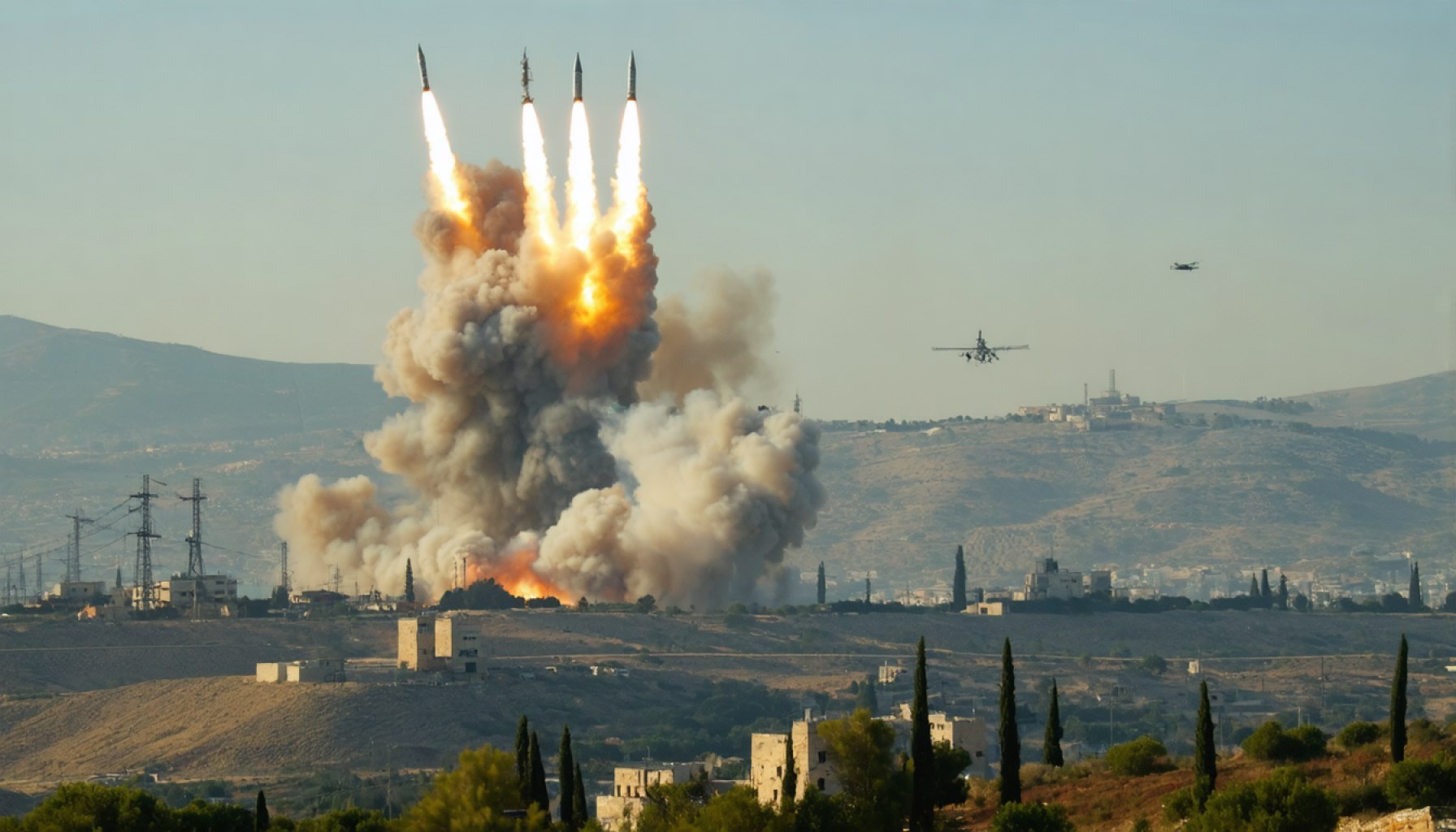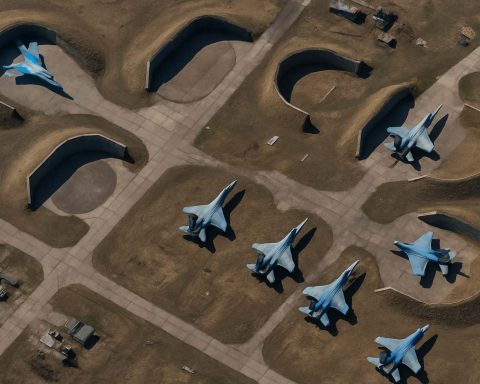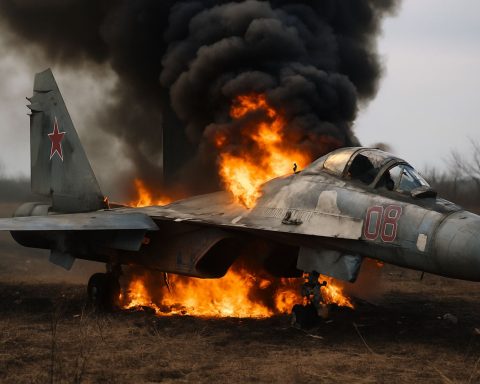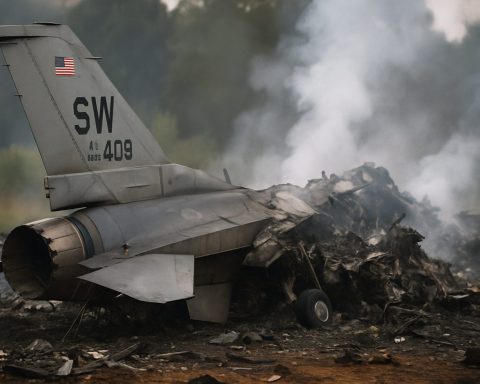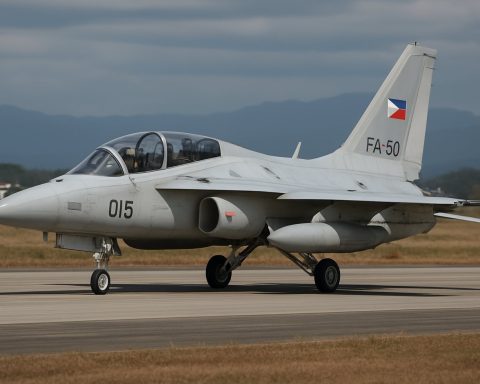- Two rockets launched from Lebanon interrupted the peace in Northern Israel, with one intercepted and the other causing no harm.
- The incident heightened regional tensions, especially affecting communities from Margaliot to Tel Hai.
- No injuries were reported, providing some relief amidst the chaos.
- Israeli Defense Minister Israel Katz issued a warning, hinting at potential retaliation if tensions escalate.
- The Lebanese government is held responsible for the rocket attacks, facing geopolitical pressure to take action.
- Peace in Northern Israel remains fragile, with the threat of further unrest looming large in the minds of its residents.
- The overall situation underscores the delicate nature of regional stability and the importance of diligent peacekeeping efforts.
The dawn sky over Northern Israel usually heralds peaceful mornings, but this Friday, its serenity shattered as two rockets streamed across the horizon, abruptly ending the calm with the urgent wail of sirens. Residents of Kiryat Shmona and the surrounding regions, awoke to a rude reminder of the ever-present tension in the region. While the military promptly intercepted one of the rockets, the other ignited no harm as it landed within Lebanese territory.
This latest flare-up, however, ignited more than just distant fields. It brought simmering regional tensions to a boil, fueling unease among communities from Margaliot to Tel Hai. Yet, miraculously, amidst the threat of chaos, humanity found reprieve as no injuries were reported. Magen David Adom, Israel’s emergency response service, confirmed that they had not been summoned to scenes of distress, offering a slender thread of relief in a volatile morning.
Yet, under the surface of this fortunate outcome boils deep-seated political unrest. Israeli Defense Minister Israel Katz has not let the incident pass without a response, bringing into sharp focus the delicate scale of regional stability. Katz’s stern ultimatum is palpable—a declaration that should tranquility desert the Galilean fields, it would not spare the skies over Beirut. The subtext couldn’t be clearer: the echoes of October 7 will not be tolerated anew.
Behind these calculated political maneuvers lies a sober reality: the tenuous peace tethering Israel’s northern communities to normalcy is easily severed. It is an electric wire—every misstep creating a spark that might ignite a larger conflagration.
The Lebanese government stands accused with a heavy burden, holding direct responsibility for the rockets’ fiery arc toward the Galilee. The looming question remains: will they shoulder this responsibility, or will the currents of geopolitics drag the region further toward the brink?
As the skies return to their blue expanse, the silence over northern Israel feels deceptive, echoing with unresolved questions and the faint promise of future disturbances. The resilience of these communities is remarkable, yet it’s a delicate balance that hangs precariously in the air.
In the end, the clouds over the Galilee dramatize the critical takeaway: Peace is a fragile treasure, demanding vigilant safeguarding lest the tumult of history repeats itself—once more, in fire and fear.
Rocket Incident in Northern Israel: Unpacking the Tensions and Future Implications
Understanding the Context
The recent rocket attack on Northern Israel, specifically targeting areas like Kiryat Shmona, resulted in no casualties, but it serves as a stark reminder of the volatile situation in the region. The interception of these rockets by Israel’s defense systems highlights the continuous threat faced by communities near the Israel-Lebanon border.
Key Insights and Contextual Analysis
1. Regional Tensions and Political Dynamics
– Israel-Lebanon Relations: The incident underscores the fragility of the relationship between Israel and Lebanon. The lack of immediate military retaliation by Israel suggests a careful balancing act in regional diplomacy. However, Defense Minister Israel Katz’s warnings demonstrate the serious repercussions that could follow similar incidents.
– Hezbollah Influence: The Lebanese government and Hezbollah’s role in these rocket attacks cannot be overlooked. Hezbollah, an influential militant political group in Lebanon, has often been at odds with Israel, contributing to regional instability. Understanding their motivations and capabilities is crucial for predicting future events.
2. Military and Strategic Developments
– Israeli Defense Systems: Israel’s defense capabilities, particularly the Iron Dome, have been instrumental in mitigating the threats posed by rocket attacks. These systems are designed to neutralize potential threats before they cause harm, ensuring the safety of Israeli citizens.
– Geopolitical Implications: This incident could influence broader Middle Eastern geopolitics by prompting Israel to strengthen its alliances and security measures. Increased Israeli collaboration with allies in the West and strategic discussions within the Arab world could arise from this escalation.
How-to Steps for Community Preparedness
1. Stay Informed: Encourage citizens to utilize official communication channels for real-time updates and safety advisories.
2. Emergency Preparedness Plans: Communities should have clear emergency protocols, including designated shelters and evacuation procedures.
3. Community Drills: Regularly scheduled drills can ensure that residents are prepared in case of future incidents.
Market Trends and Industry Insights
1. Defense and Security Industry:
– The defense sector, particularly companies involved in missile defense technology, could see increased demand due to the ongoing threat of rocket attacks in various regions worldwide.
– Investments in cybersecurity measures are also expected to rise as geopolitical tensions escalate.
Risks and Limitations
– Potential for Escalation: Any miscalculation in response strategies could result in rapid escalation, potentially leading to larger conflicts.
– Diplomatic Strain: Ongoing tensions might strain diplomatic ties both regionally and internationally, possibly affecting economic relations and aid negotiations.
Actionable Recommendations
– Enhancing Civil Defense Measures: Community leaders should advocate for improved civil defense infrastructure and regular updates to emergency plans.
– Promoting Diplomatic Dialogue: Encouraging diplomatic dialogue between Israel and Lebanon, with mediation from international bodies, could help de-escalate potential future conflicts.
– Community Resilience Workshops: Conduct workshops to bolster psychological resilience in communities frequently facing existential threats.
Conclusion
The recent rocket attack in Northern Israel is a poignant reminder of the fragile peace in the region. Ongoing vigilance, strategic military preparedness, and proactive diplomatic engagement are crucial in preventing further escalation. With regional stability hanging in the balance, the path forward lies in embracing strategic negotiations and community readiness.
For more information on regional developments and insights, visit New York Times or BBC.
